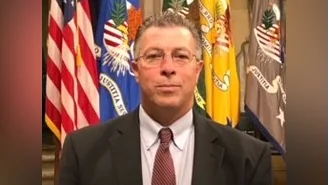The publication is reproduced in full below:
NOTICE OF INTENT TO OBJECT TO PROCEEDING
I, Senator Chuck Grassley, intend to object to proceeding to S. 2610, a bill to authorize appropriations for fiscal year 2022 for intelligence and intelligence-related activities of the United States Government, the Intelligence Community Management Account, and the Central Intelligence Agency Retirement and Disability Fund, and for other purposes, dated September 21, 2021, for the reasons stated in the Record.
Mr. President, I intend to object to any unanimous consent request relating to the passage of the Intelligence Authorization Act for Fiscal Year 2021 (S. 2610), a bill to authorize appropriations for fiscal year 2022 for intelligence and intelligence-related activities of the United States Government, the Intelligence Community Management Account, and the Central Intelligence Agency Retirement and Disability System, and for other purposes.
Throughout my time in Congress, I have made every effort to promote greater awareness and flexibility for whistleblowers that wanted to bring their concerns to any member of the legislative branch. Unfortunately, this bill does the opposite, and it further codifies existing standard practices within the several intelligence agencies to limit whistleblower access. This bill would allow whistleblowers with intelligence equities to bring their concerns directly to Congress. But instead of allowing whistleblowers to bring their concerns to any Committee of jurisdiction, it limits the Committees a whistleblower can bring their concerns to only the House and Senate Intelligence Committees. If the goal of this legislation is expanding whistleblower protections, then whistleblowers should be given more avenues, not fewer. This means allowing them to report instances of wrongdoing to any committee of jurisdiction.
I also have particular concerns that this legislation may inadvertently roll back protections for FBI employees that under current law, can bring their concerns to any member of Congress. Under the FBI Whistleblower Protection Enhancement Act, which Congress passed unanimously in 2016, FBI whistle blowers can bring their concerns directly to any member of Congress. This bill would instead require FBI whistleblowers with Intel equities to bring their concerns exclusively to the Intelligence Committees.
In some instances this may be a good option for some whistleblowers, as well as the best way to protect national security. However, not all matters that are classified or that involve Intel equities are exclusively Intelligence Committee matters. There are issues that more appropriately fall under another committee's jurisdiction. For instance, a matter involving Foreign Intelligence Surveillance (FISA) Courts may be more appropriate for the Judiciary committee; likewise a National Security Agency (NSA) matter may be better heard by the Armed Services committees.
This would align with SSCI's founding documents which make it clear that its jurisdiction does not supersede, or take away from, any other committee's jurisdiction.
For these reasons, I request to be notified before any unanimous consent agreement is agreed to regarding S. 2610, as I intend to object unless the bill was joined with an amendment that would:
1. Change the mandatory reporting to the House/Senate Select Committees on Intelligence to committees of Jurisdiction.
2. Add a disclaimer that clarifies that, when codified, that this bill would not place additional restrictions on whistleblowers with intel related equities and that they retain all of their other rights under other federal whistleblower laws.
____________________
SOURCE: Congressional Record Vol. 167, No. 163
The Congressional Record is a unique source of public documentation. It started in 1873, documenting nearly all the major and minor policies being discussed and debated.
Senators' salaries are historically higher than the median US income.





 Alerts Sign-up
Alerts Sign-up